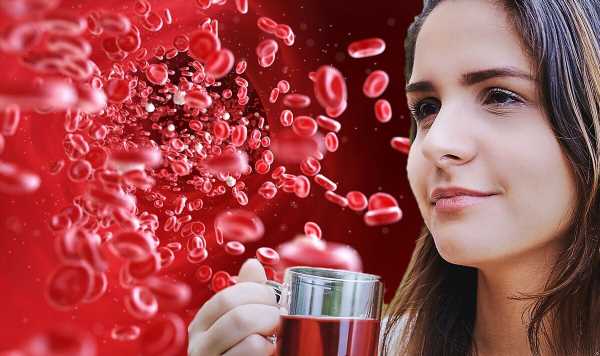High blood pressure: Doctor explains benefits of hibiscus tea
We use your sign-up to provide content in ways you’ve consented to and to improve our understanding of you. This may include adverts from us and 3rd parties based on our understanding. You can unsubscribe at any time. More info
While there are medications that can be used to lower blood pressure, these might not be suitable for everyone. And even for those using prescriptions it is likely your doctor will recommend making some lifestyle changes to improve your health. Diet will play a large part in this, with salt a large contributor to hypertension.
As well as there being foods and drinks that can put you more at risk of high blood pressure, there are others that can lower the risk.
One study, published in the Food and Nutrition Technology Journal, revealed that drinking two to three cups of a certain herbal tea can “significantly” lower blood pressure.
The paper combined results from more than 20 studies to examine a range of health effects linked with consumption of hibiscus tea, particularly heart health benefits.
Speaking about the results Doctor Carrie Ruxton, from the Tea Advisory Panel – which conducted a review of the findings, explained further: “In one meta-analysis, there was an overall blood pressure reduction of 7.58 millimetres of mercury (mmHg) for systolic blood pressure and 3.53mmHg for diastolic blood pressure.”

Blood pressure is recorded with two numbers; the higher number – systolic pressure – refers to the force at which your heart pumps blood around your body.
And the lower number – diastolic pressure – is the resistance to the blood flow in the blood vessels.
As a general guide high blood pressure is considered to be 140/90mmHg (mmHg) or higher (or 150/90mmHg or higher if you’re over the age of 80).
Dr Ruxton added: “Putting that into context, studies have shown that a blood pressure reduction of 10mmHg systolic or five mmHg diastolic is associated with a 22 per cent average reduction in heart attacks and a 41 percent average reduction in strokes.
“It’s amazing to think that we can help keep our hearts healthy by enjoying a few cups of hibiscus tea each day.”
Hibiscus tea is made from the dried petals of a tropical plant, hibiscus sabdariffa, which probably originated in West Africa.
Nowadays, it is cultivated widely across the tropics where it is sometimes called “roselle” or “red sorrel” due to its rosy, red hue.
It can be bought in most supermarkets and health stores and consumed either hot or cold.

The research review also noted clinical trials of hibiscus tea which found favourable changes to blood cholesterol, triglycerides, inflammation, and blood glucose control – these are all key markers for cardiovascular health.
Lead author of the Tea Advisory Panel review and medical herbalist, Dr Chris Etheridge, added: “Like berries, cocoa, olive oil, nuts and avocados, hibiscus is a source of polyphenols – plant compounds which lower inflammation and protect body cells from free radical damage.
“We already know from clinical trials that regular black tea has cardiovascular effects – thanks to its rich polyphenol content, mostly from flavonoids.
“Now we see a similar positive impact from Hibiscus infusions, which are rich in another type of polyphenol, called anthocyanins.

“These give hibiscus its characteristic rose pink colour.
“Drinking hibiscus tea daily is a simple way to kick start a heart health diet – one that’s full of fruit, vegetables, wholegrains, oily fish, nuts and seeds.”
Blood pressure “rarely” has symptoms.
But there are certain things that put you more at risk, including if you:
- Are overweight
- Eat too much salt and do not eat enough fruit and vegetables
- Do not do enough exercise
- Drink too much alcohol or coffee (or other caffeine-based drinks)
- Smoke
- Do not get much sleep or have disturbed sleep
- Are over 65
- Have a relative with high blood pressure
- Are of black African or black Caribbean descent
- Live in a deprived area.
Source: Read Full Article
